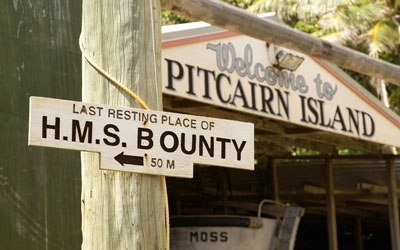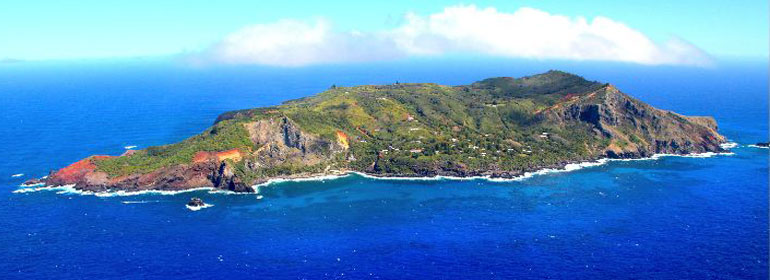Pitcairn, a tiny Pacific island home to just 48 people (most of them direct descendants from the infamous Bounty mutineers) has passed a law allow gay marriage, despite having no openly gay residents.
The new law came into effect on May 15 and was unanimously approved by the local council after it was suggested by British authorities (Pitcairn is officially a British Overseas Territory). The decision wasn’t published online until now following some technical issues on the island’s official website.
“It’s not Pitcairn Islanders that were pushing for it,” Island resident Meralda Warren told ABC News. “But it’s like anything else in the world. It’s happening everywhere else, so why not?”
Australian marriage equality advocates welcomed the news.”Assuming there’s not a residency requirement, I could imagine some couples from off the island might find it a romantic destination, including Australians who can’t marry in their own country,” said Rodney Croome, national director of Australian Marriage Equality.
Pitcairn Island – populated with descendants of mutineers of the infamous naval vessel HMS Bounty and their Tahitian companions – has a storied past.

In 1787 the Royal Navy acquired the HMS Bounty for a single experimental mission: to find, secure and transport breadfruit plants from Tahiti to the West Indies in order to create a sustainable, cheap food source for native slaves. After reaching Tahiti and sampling the local delights (many sailors procured wives and Polynesian styled tattoos) the ship’s crew were resentful when it was time to sail home.
Unsurprisingly, a mutiny occurred in April, 1789. Although it has been claimed that ship’s captain William Bligh was a cruel leader, in truth many of the men were reluctant to leave their Tahitian paramours. In total, 22 (of the 42 total compliment) mutineers seized the ship and sailed back to Tahiti, before travelling further afield to avoid the naval vessels sent to recover them. On January 15, 1790, the mutineers (which by now included six Tahitian men, and 11 women, one with a baby) settled on Pitcairn Island and burned the Bounty to prevent detection and defection.
© 2015 GCN (Gay Community News). All rights reserved.
